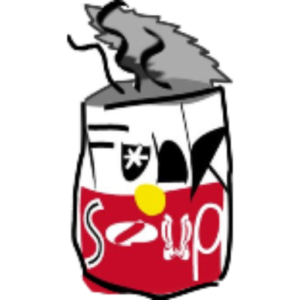We’re here at
PICNIC, a 3-day festival for movers and shakers in the creative and innovation fields (it’s akin to the
TED conference, but funkier and in Amsterdam) – full of ideas, fun and sensory stimulation in media, technology, entertainment, art and science.
We’ve been invited to do a live version of
This Spartan Life, a talk show that happens inside the videogame
Halo, as part of the festival. We’ll be interviewing video game expert
Dr. Gerri Sinclair, with an appearance by
Peter Molyneux, creative director of Microsoft Game Studios Europe. It’s a mixed reality experience, so the audience will be seeing the show live within the Halo game, as well as in the physical space at PICNIC. The interview happens while the game is being played, so the talk show host and guests are “
under fire” – dodging virtual bullets and plasma rifle-wielding aliens, while chatting about talk show topics and being projected on the screen before the audience. Described by Wired Magazine as “a mash-up of The Charlie Rose Show and Doom,” This Spartan Life combines high-brow interviews with non-stop fragging, hilarious asides and slapstick comedy.We go on today at 9:15am in the Conference Hall in Westergasfabriek, Amsterdam, right before Peter Molyneux takes the stage. We’ve been setting up and rehearsing these last couple of days, and things have been going really well so we’re excited to bring it!
Following are some shots of prepping This Spartan Life – LIVE @ PICNIC, the festival surroundings and the
Augmented City Lab which we participated in yesterday.
The
Augmented City Lab focused on near-future scenarios for mobile location-aware services – great workshop hosted by
Ronald Lenz. Our particular task was to figure out an “Augmented City” application that used
laser tagging technology. We came up with the idea of “Augmented Branding” – adding your voice to advertisements.
Here’s how it would work:
A laser tagging station is set up in one city in front of a specific billboard. Users at the station are encouraged to tag on top of the billboard, sharing their comments on the brand, product or implications of the ad. The users’s graphic overlays are saved to an online database. This is done with a number of other billboard ads.
Other participants with cell phones download an augmented reality app. Using the app they find billboards that have been added to the database and which also exist in their city. They go to the billboard and point their cell phone camera at it. The software tracks the ad image and displays a selection of user-created overlays to view. This way users can share their thoughts on a range of advertising images in their environment.
…and here’s a cool augmented reality app by
Lemonade, who facilitated our group during the workshop
…and when you want to chillax, you can put your feet up & tweet underneath the “TwitterTree”






















Leave a Reply
Want to join the discussion?Feel free to contribute!